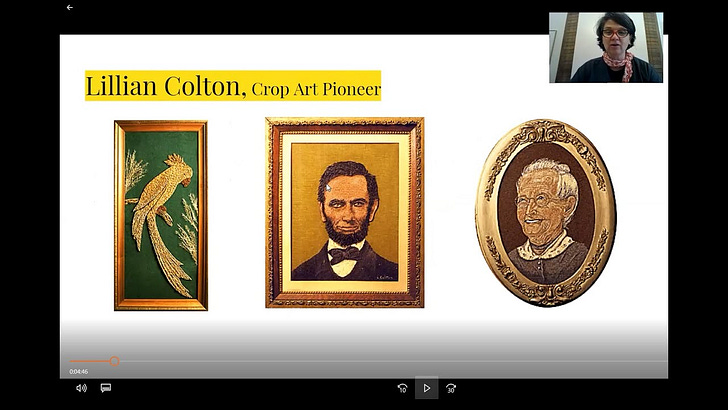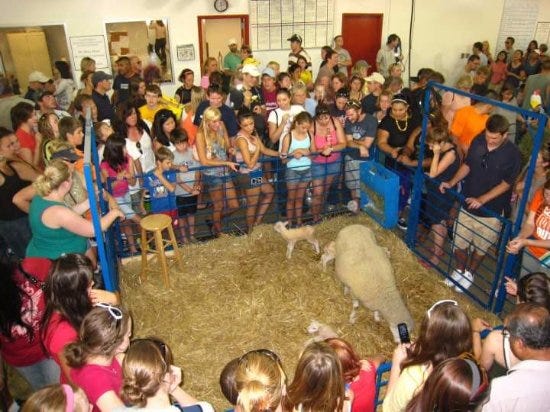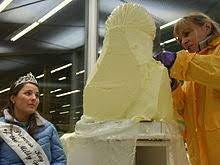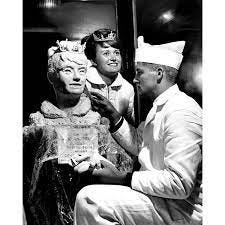A Big Jumpy State Fair Full of Sweat and Sticked Foods
Nervous making even when there isn't a pandemic. There is a pandemic.
Please remember that our show exists because of listener donations. If you’ve donated, THANK YOU. If not, it’s easy: go here, pick a level that works for you, then select DEPRESH MODE from the list of shows.
Fair or No Fair
Before I ever moved to Minnesota, I heard about the Minnesota State Fair. I was working for a large public radio organization but I was based in Seattle and the printed magazine run by the organization wanted to find out what an outsider thought of the Minnesota State Fair. So they interviewed me about it.
It was a short interview. I told them I had never thought anything about the Fair. Was there a fair? No, I had no opinion.
Then when we moved to Minnesota in March of 2008, one of the first things our new neighbors asked was if we were planning to go to the Fair. “I’m not sure,” I said. “Is it this weekend?” No, I was told. It’s in late August.
The Minnesota State Fair is a monumentally big deal to people around here and people around here are convinced it’s a big deal to everyone in the world as well. Kind of like The Jayhawks.
My family has embraced the Fair by way of the crop art competition, where you make a piece of visual art using crops that are native to the state. My wife and two daughters have all won blue ribbons in the contest and I once entered a piece called Vladimir Gluten, which did not win any kind of ribbon.
So now the damn Fair is a big deal to us. I share this in a mental health newsletter because the Fair is kind of a shared madness. Minnesotans, not unanimously but collectively, have decided that this is event is a big deal. To walk around in a pack, they have said, and eat weird food on sticks and look at farm animals being born,
and check out the butter princesses and watch concerts by, oh, let’s say Night Ranger, this is a big deal.
Last year, there was no Fair because of the covid. This year, it was announced months ago that there WOULD be a Fair. Then the delta variant started kicking ass and now it’s too late to call it off. It’s like on tv when someone hires a hitman but the hitman’s condition is that you can’t cancel the hit once it’s on.
And here it becomes a mental health thing once again because it is necessarily a choice that every Minnesotan - and no one else - needs to grapple with:
If you’re vaccinated, are you at risk of catching the delta and spreading it around?
If you’re outside, are you at substantially less risk so it’s okay?
What about if you’re outside but are shoulder to shoulder with sweaty people wearing gross t-shirts?
Do you go but stay out of inside sections like the barn where animals give birth or the crowded crop art display room?
If you’re not vaccinated but are eligible, what the fuck is wrong with you? I mean Jesus.
Or, if vaccinated, do you skip it entirely? And is the reason because of a covid fear or just because you’ve kind of given up?
Right now, I don’t think I’ll go. But. That would mean two years of not seeing the butter princesses and two years of not getting the jalapeño cheese curds from the stand next to the giant slide.
And two years without seeing farm animals being born. That part I’m okay with.
In short, this year’s Minnesota State Fair is sponsored by ANXIETY.
Are You Watching Tuca & Bertie?
You oughta. It’s a really smart and funny exploration of friendships, romantic relationships, anxiety and more. Also, the people are mostly birds. Sometimes plants with human bodies.
We have an interview with the creator of the show, Lisa Hanawalt, coming up a week from Monday.
I Don’t Want to Hate This Article As Much As I Do
But I do.
Headline is U.S. Mental Health Under Growing Strain in Covid’s Second Summer
And it has some data:
Some 22.3 million Americans recently received counseling or therapy from mental-health professionals, according to new data based on research in the two weeks through Aug. 2. That’s an increase of more than 5 million compared with late August last year, when the bureau’s regular Household Pulse survey first posed the question.
There was an even bigger jump in the number of Americans saying they needed that kind of help -- but didn’t get it. That figure is up by about one-third from last summer, to 23.6 million. And some 46.4 million people are now taking prescription drugs to help with emotional or mental health, up by nearly 9 million over the period.
And a quote:
“We do have a collective trauma,” said Janis Whitlock, a director of the Jed Foundation, a nonprofit group that promotes mental-health assistance for young people. “We’ve never been in this kind of collective state of uncertainty.”
And then there’s this:
One study found that “poor mental health days” were likely to result in tens of billions of dollars in lost output for the economy, making it one of the costliest forms of sickness.
And I’m sure that’s true. It probably belongs in this article. It does emphasize the problem. I guess I just hate articles that talk about real human pain and then turn around and commodify it.
The bones are their dollars.
Well Good.
I don’t know much about Britney Spears and even less about her legal or mental health situation but her father has stepped down from her conservatorship and I think that’s good.
Also, and this doesn’t matter, he should have spell-checked that name. Brittany.
I’ll leave Britney alone and offer this:
The secret about a lot of bubblegum pop songs is that they’re fundamentally well built songs. Also, many of them are written by Max Martin, a Swede, who misunderstood what “hit” meant. He thought it would be widely understood in the context of “hit me up”, as in “get in touch with me”.
No one cared. It was a really good song.






